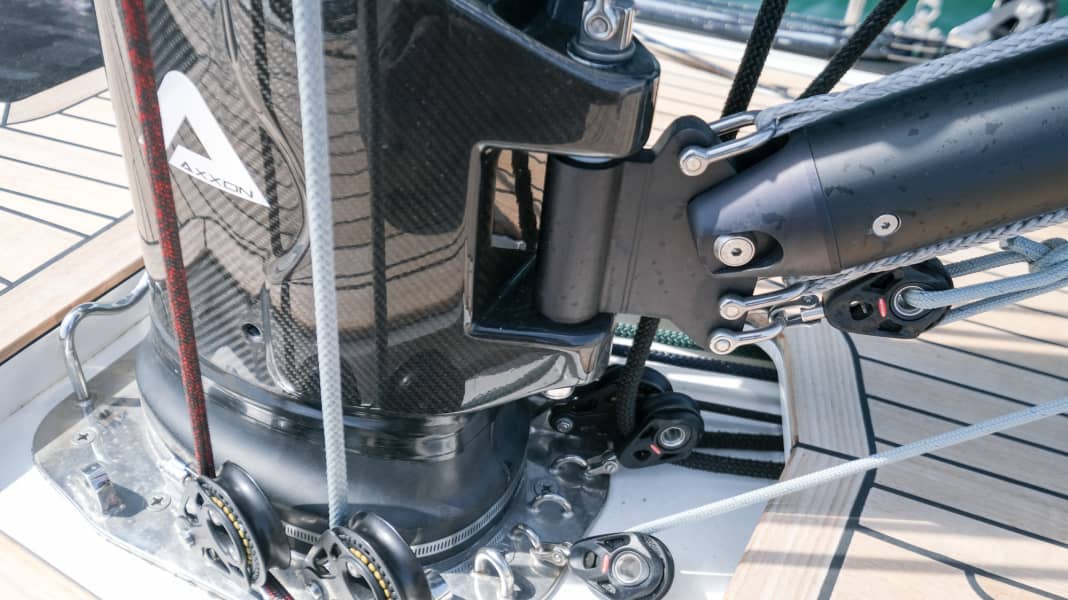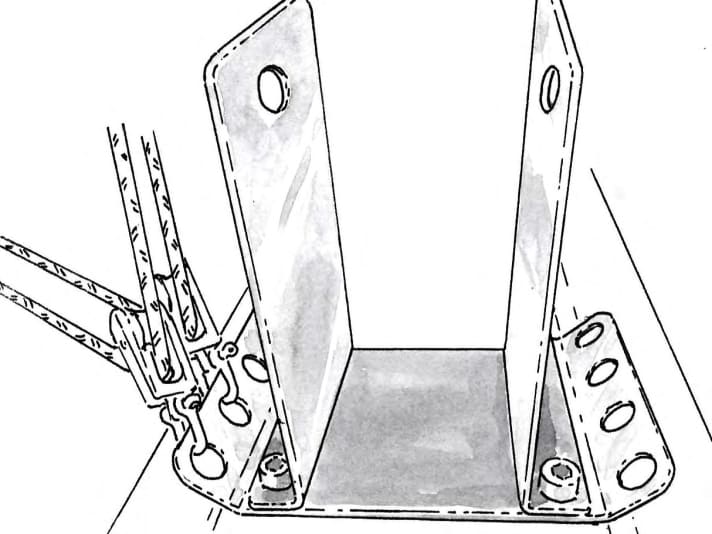
Mast foot lifehack 1: Upgrade for more safety single-handed

We equipped a friend's Flying Cruiser for safe single-handed sailing. The most important item on the list was to redirect the halyards and outhauls aft into the cockpit.
For the sake of simplicity, we didn't want to change the original mast base. The solution: We had a locksmith make us a stainless steel plate. The material is three millimetres thick and slightly chamfered on the sides, with the necessary holes for attaching the new guide rods. The screw holes match those in the mast base, so the plate can simply be fitted underneath it. In addition, no new holes are required for mounting on the superstructure. This naturally raises the mast by three millimetres. This very small change in length is compensated for by the shroud tensioners without any problems.
Norbert Franzke, Krefeld
Mast foot lifehack 2:How to make the mast collar really tight

Sealing the gap between the mast and the deck grommet is a general problem with through-stepped masts. We wrap hand-width strips of shrink film around the deck grommet after positioning the mast, fix it in place with tape and carefully shrink the material together with a hot air gun. Two layers of film are enough for a watertight result. A canvas collar covers the shrink film and gives it a nice look.
Bernd Oberländer, Emsdetten
Mast foot lifehack 3:Mast electrics well protected

The cables of the VHF antenna, wind sensor and position lights are relatively unprotected between the outlet on the mast and the socket at the base of the mast. UV radiation in particular causes them to become brittle and, in the worst case, the entire cable in the mast has to be replaced. This can be remedied by using a spiral hose from a computer retailer. This is pulled over the cable and protects the plastic surface from UV radiation. Of course, it itself is affected in the process. However, if the hose becomes brittle, it can be replaced easily and inexpensively.
Carsten Dubois, Elchingen
Mast foot lifehack 4:Deflector for smooth turning

It's a recurring annoyance - especially in light winds, the genoa sheet quickly gets caught under the spinnaker pole attached to the mast or behind the gooseneck of the cable grommet. Not only does it have to be cleared by hand, the gooseneck is also at risk of tearing. A line stretched from the handrails to the mast provides a remedy. This simple deflector prevents the sheet from coming too close to the fittings and getting tangled behind them.
Joachim Kannengiesser, Kiel
Do you have any advice for other sailors?
We will honour the publication of your lifehack with50 EURO.Please add photos or sketches. We also need your address and bank details
Submissions to: Editorial office YACHT, Quartier O, Paul-Dessau-Straße 8, 22761 Hamburg; or: mail@yacht.de
